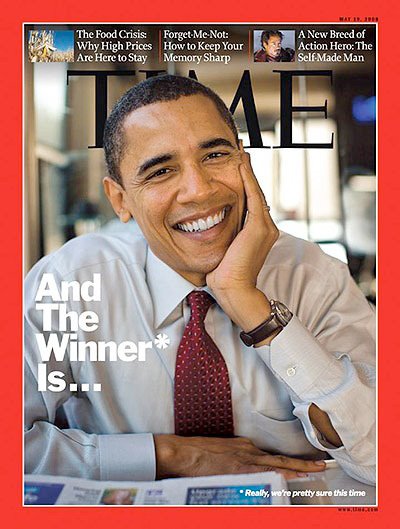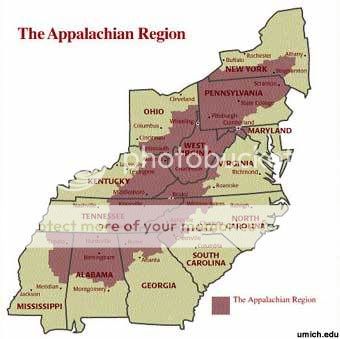In Dixie, Signs of a Rising Biracial Politics
By JACK BASS
New York Times, May 11
Across the South, Barack Obama’s smashing primary victory in North Carolina last week reflects a new reality—a half-century of rising Republican red tide has crested, with signs of receding. A week ago yesterday, Democrats won a special Congressional election in a Louisiana district held by Republicans since 1974. That outcome might well be replicated Tuesday in Mississippi, where a biracial Democratic coalition is optimistic in the second round of another special Congressional election.
...In response to Mr. Obama’s energizing of black Southern voters, enlightened self-interest may well convince many of the region’s undecided superdelegates to endorse him. Over the last two years, there have been little-noticed Democratic gains in Congressional and state legislative elections across the South, as the solid black Democratic base has been joined by whites disenchanted with the Bush administration. New concern about the economy may be adding momentum. The Republican tide surged across the region in the 1990s, bringing large gains in state legislatures and a vault from 39 members of the House of Representatives before the 1992 elections to a 71-53 majority in 2000. But in 2006 and 2007, Democrats in the 11 states of the Confederacy gained six Congressional seats—a Senate seat in Virginia and five House seats—and added 30 state legislators. Florida’s battered Democrats gained two House seats in 2006 and five in the Statehouse. Arkansas elected a Democratic governor to join the party’s two United States senators and the majorities of both legislative houses. Democrats control both legislative houses in Mississippi as well. The story is most dramatic in Virginia, which in 1976 was the only state in the South that failed to back Jimmy Carter for president. Republicans still hold a majority in the House of Delegates and an 8-3 dominance in seats in United States House. But with their second Democratic governor in a row, the party in control of the State Senate, and the likelihood of Mark Warner being elected their second Democratic senator, Virginians may have reached a Democratic tipping point.
The trends suggest a region in transformation, with dynamic economic growth, an expanded black middle class, the arrival of millions of white migrants, the return of scores of thousands of African-American expatriates, and an emerging native white generation with little or no memory of racial segregation. The result has been greater tolerance, an expanded pool of talent, and growing openness to new ideas.
In the South Carolina presidential primary in January, one factor in Mr. Obama’s decisive victory was his ability to draw 25% of the white vote against two strong white opponents, Hillary Clinton and John Edwards. But the turnout may have been the strongest sign of change. Almost 100,000 more South Carolinians voted in the Democratic primary than in the Republican contest. The surge smashed the previous Democratic presidential primary record by more than 80%—this in a state where Republicans hold both Senate seats, the offices of governor and attorney general, and both houses of the legislature. The more astute white Democrats saw an energized black electorate as a core element for a future biracial comeback.
A bit of Southern political history can help in understanding the present. In 1948 the Dixiecrat campaign of South Carolina’s theretofore liberal governor, Strom Thurmond, aroused the region’s most racially conservative voters, striking a powerful psychological blow to the Democratic “solid South” that had emerged from the Compromise of 1877. (That agreement resolved a disputed election by giving the Republican, Rutherford B. Hayes, the electoral votes from three Southern states, providing a one-vote margin to win the presidency; in return, conservative Southern Democrats obtained the withdrawal of federal troops from Southern states, and Reconstruction ended.) In 1952, Dwight Eisenhower became the first Republican presidential candidate ever to campaign in the South. He won four upper South states in 1952 and added Louisiana in 1956. In 1961, Barry Goldwater launched the Republican “Southern strategy” at a gathering of Republican leaders in Atlanta. “We’re not going to get the Negro vote as a bloc in 1964,” he declared, “so we ought to go hunting where the ducks are.” He voted against the 1964 Civil Rights Act, and Mr. Thurmond, by then a senator, switched parties, bringing his Dixiecrat followers with him.
Now things are changing again. In Tennessee’s 2006 Senate race, the moderate Democrat Harold Ford Jr., a five-term African-American congressman, faced Chattanooga’s mayor, Bob Corker, a moderate Republican. With the race in a dead heat, the Republican National Committee aired an ad ending with an attractive young blonde woman saying with a come-hither look, “Harold, call me.” The “Southern strategy” still worked, but barely. Mr. Ford lost, 51% to 48%, but he did get 40% of the white vote. Another sign was George Allen’s loss of his Senate seat in Virginia, after he used the term “macaca” to insult a heckler. Both experiences reinforced the Democratic allegiances of African-Americans, and Mr. Obama’s mass canvassing to register and turn out new voters has now energized an expanding base.
Although the effects of past discrimination still include widespread poverty among African-Americans, it’s mostly hidden from view. The outlawing of discrimination in employment, under the 1964 Civil Rights Act, has resulted in a unified, biracial work force in which white and black Southerners can more easily acknowledge a common regional identity and biracial culture, as found in music, literature, religion, food and a sense of place.
...After the 1990 census, the first Bush administration reached an agreement with civil rights groups under which the Justice Department required legislatures to increase the number of voting districts in which minority groups were concentrated. As a result, Southern blacks more than tripled their numbers in Congress; many now have seniority and status as committee chairmen or other posts. But with the removal of blacks from predominantly white districts that had tended to vote Democratic, Republicans too made huge gains, and the ranks of moderate white Democrats were decimated. Similar patterns emerged in state governments, like South Carolina’s. Now, however, there are established and seasoned African-American Congressional Democrats like James Clyburn of South Carolina, the majority whip, and the civil rights hero John Lewis of Georgia, deputy whip. So the potential exists to launch a renewed equivalent of the Voter Education Project of the late 1960s. Such an effort would include energizing often-complacent black legislators and lesser officials elected in safe districts to mobilize their voter base for statewide and Congressional Democratic candidates.
The demonstrated capacity of black elected officials to gain and hold white support could lead a future Department of Justice to decide that blacks need not be quite so concentrated in districts any more. And that would open expanded electoral opportunities for Democrats across the South. Like Americans across the country, many Southerners, black and white, are troubled by the war in Iraq, rising deficits and a plummeting economy symbolized by the soaring price of gasoline. Race itself is receding as a divisive issue. Like the late afternoon sky across the region, there’s a purple hue across one horizon.







